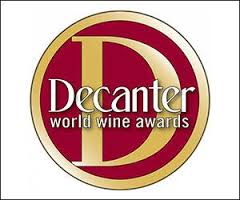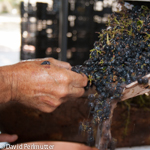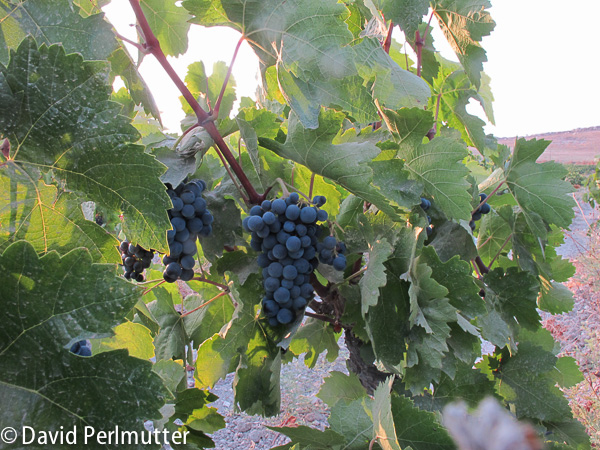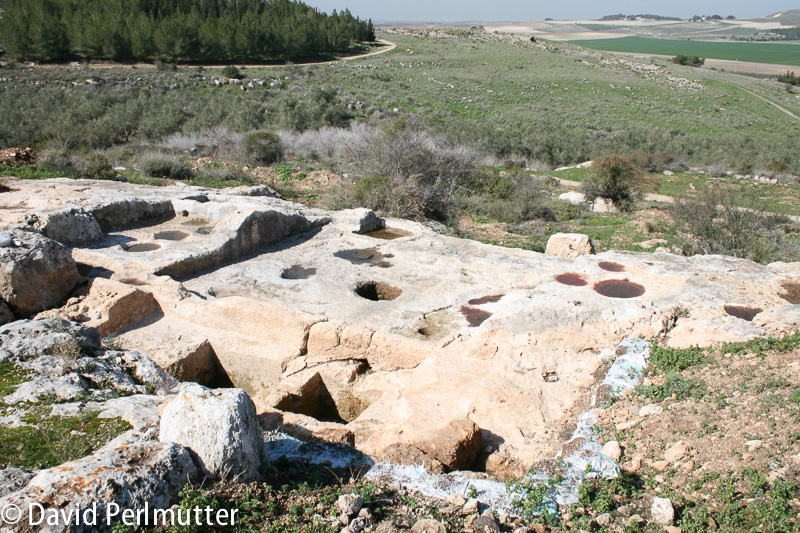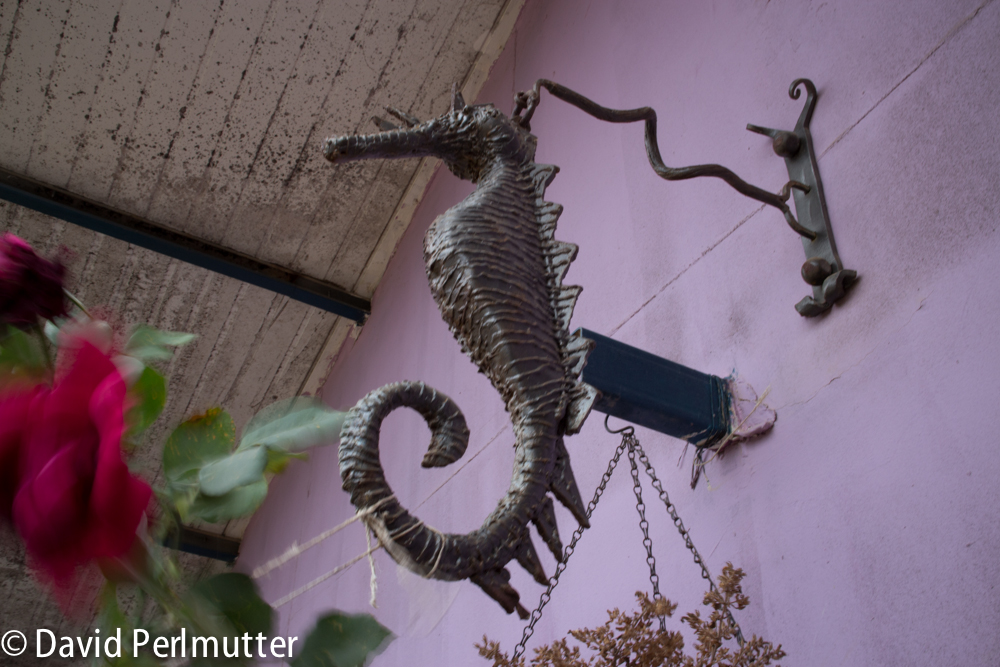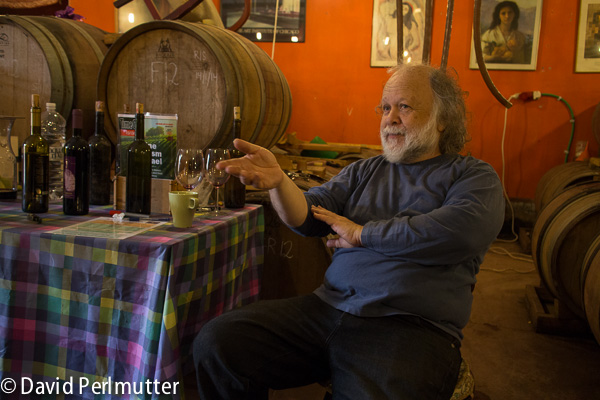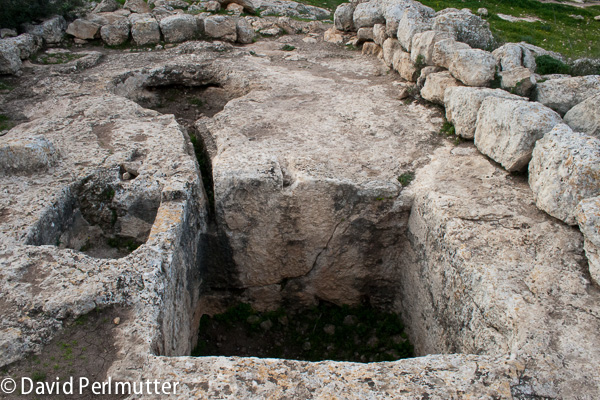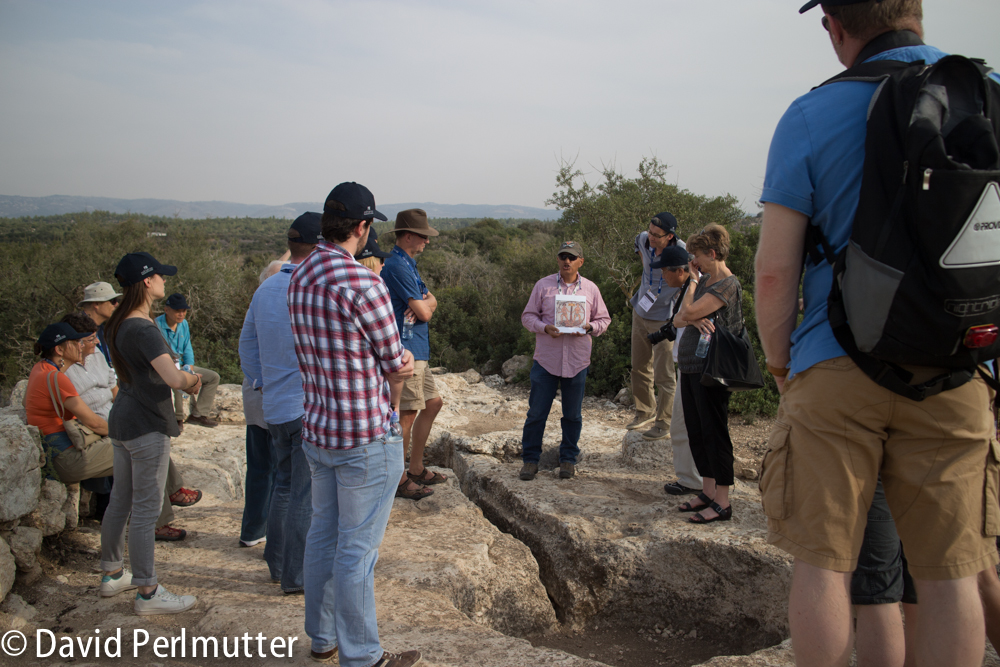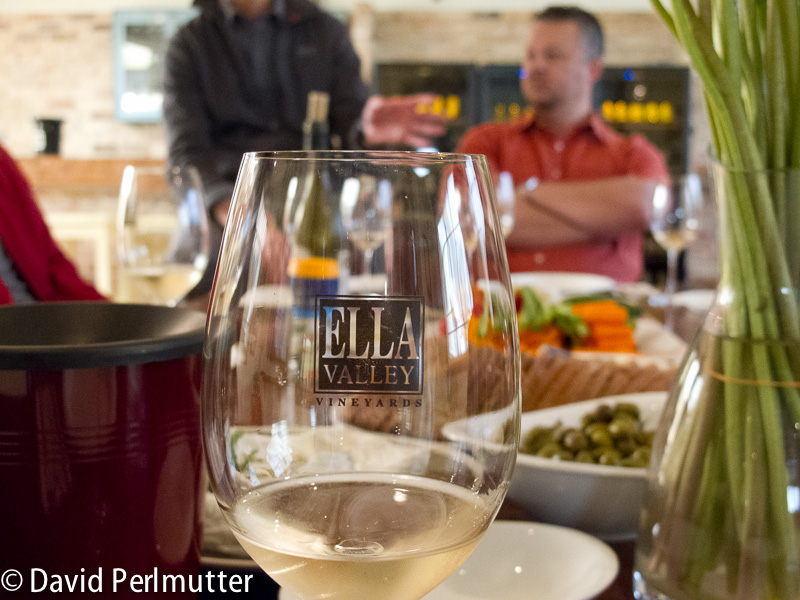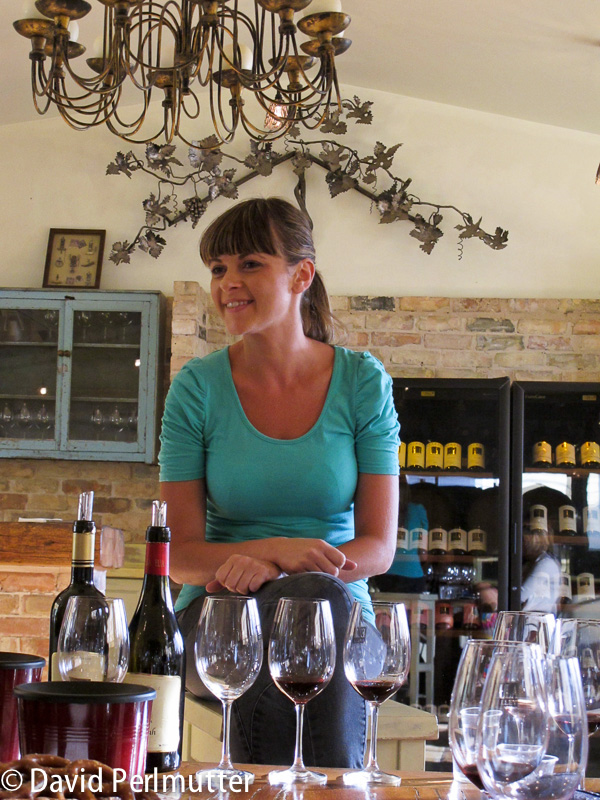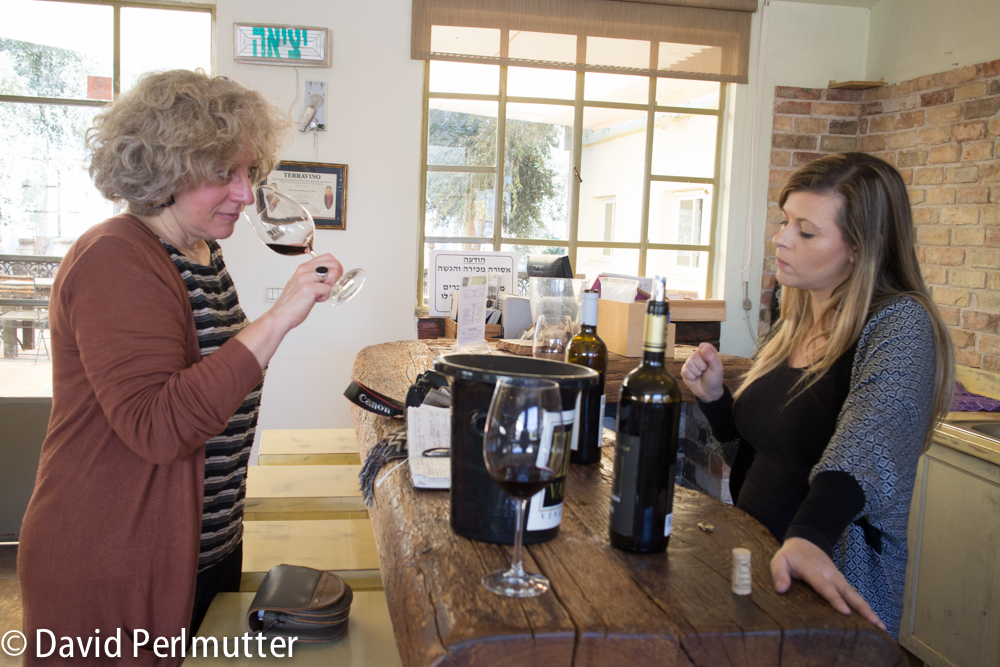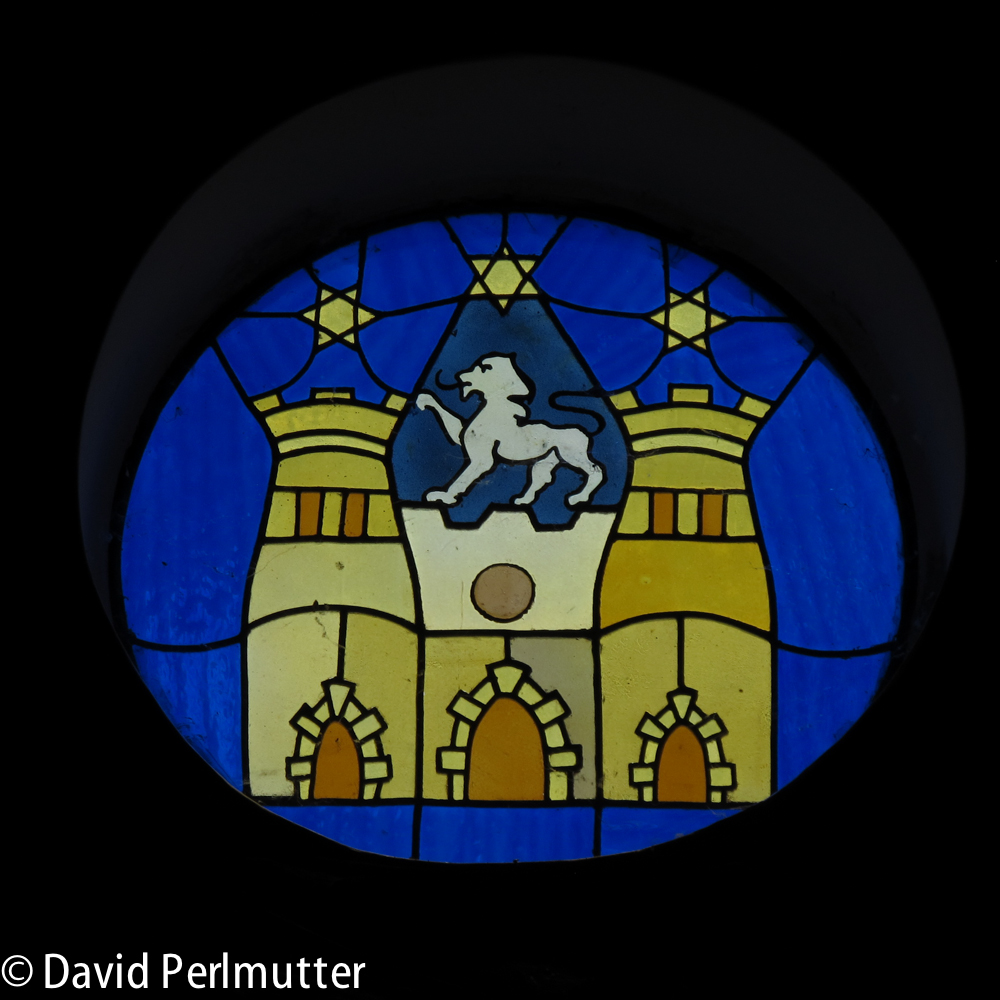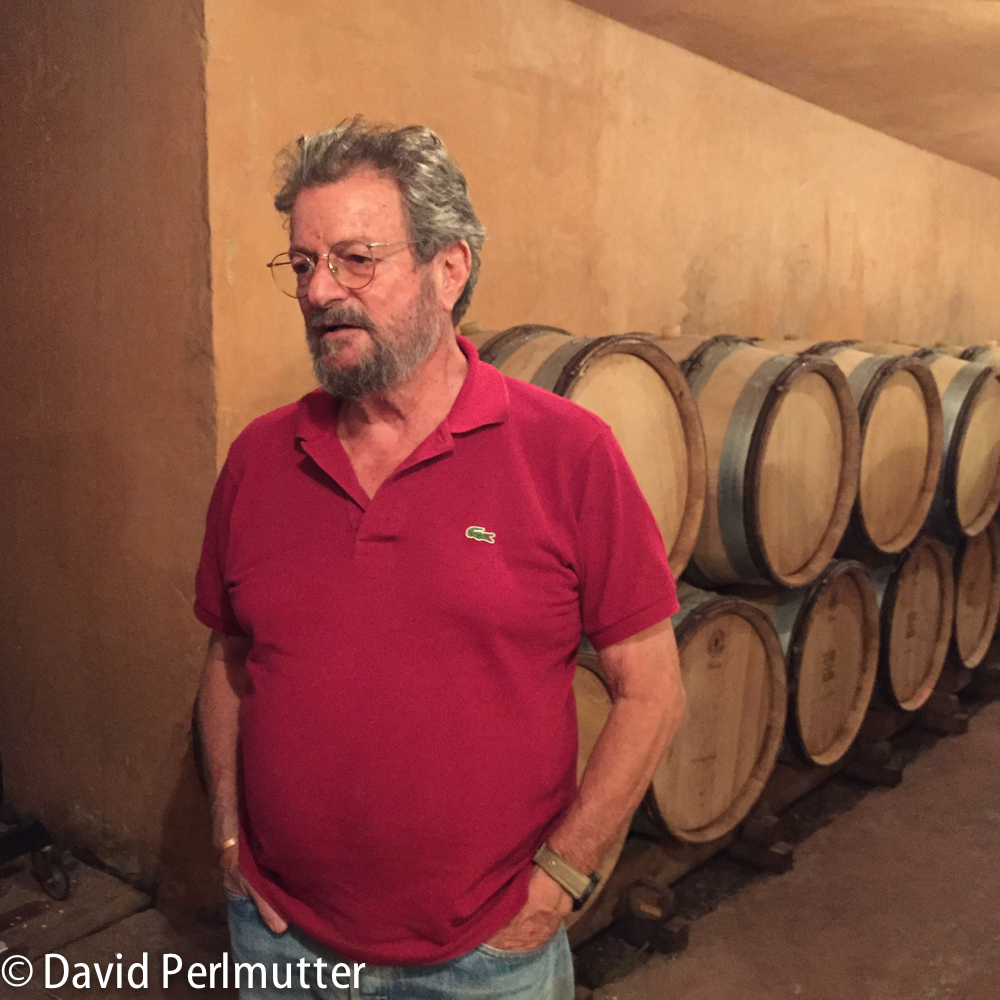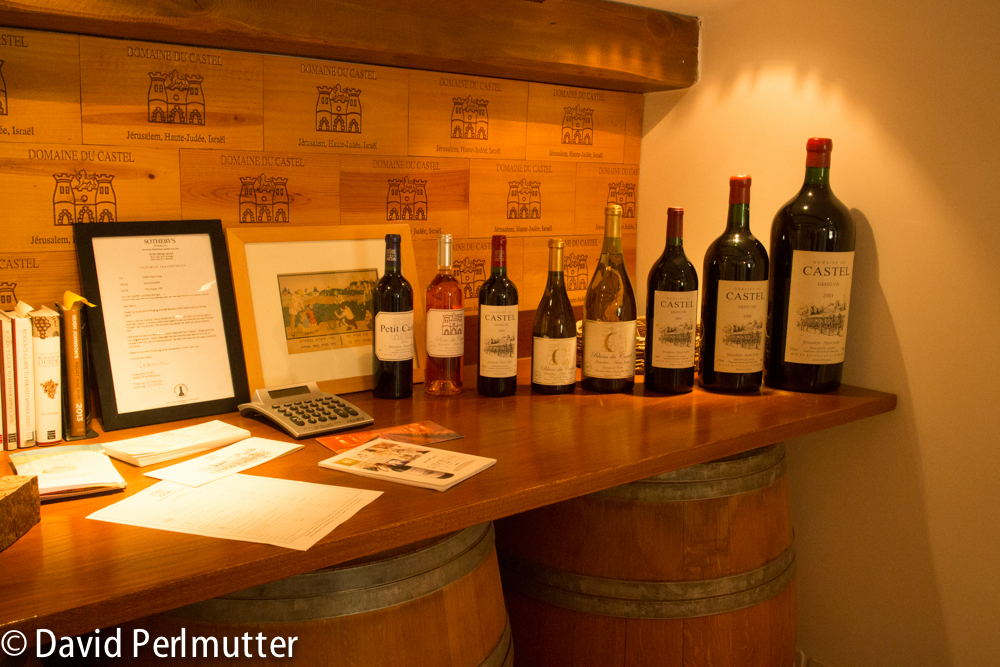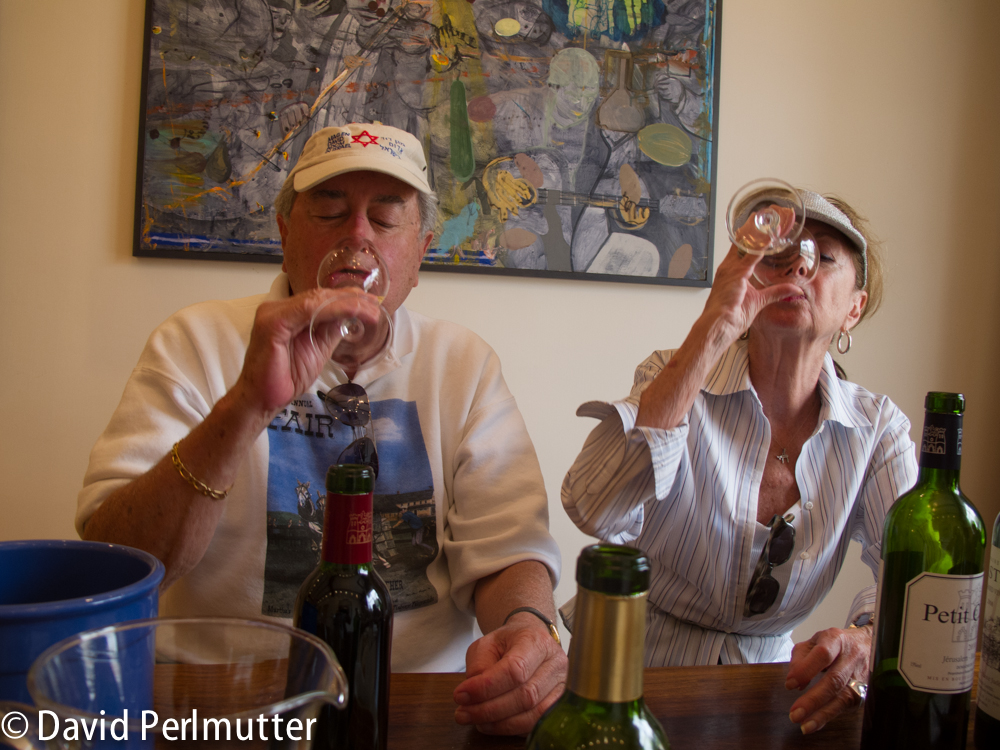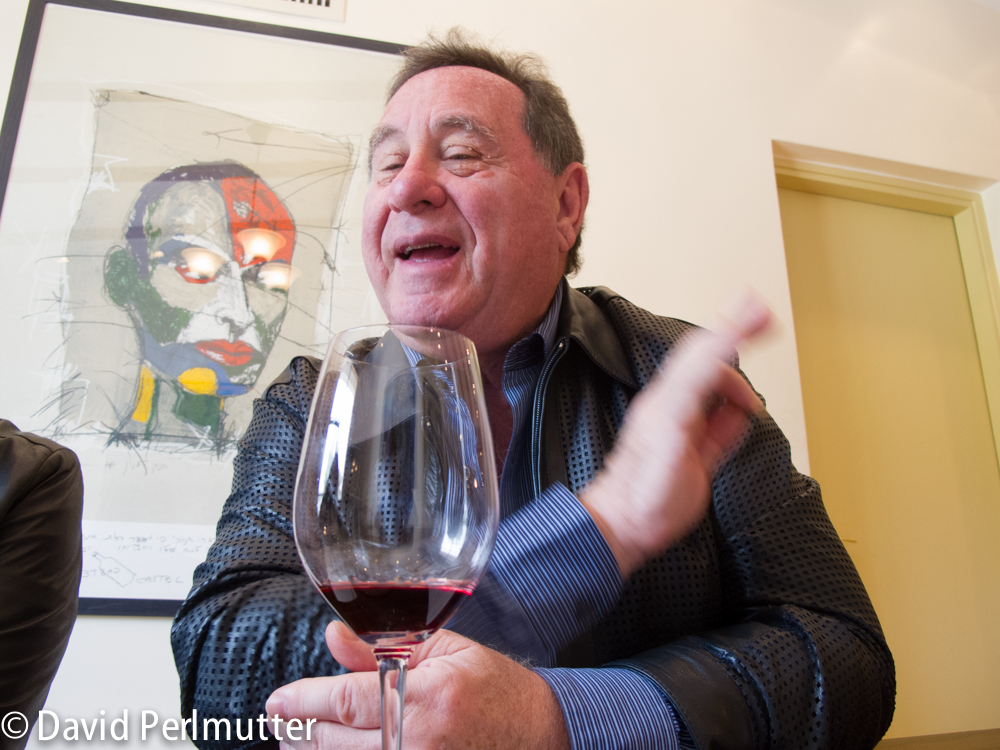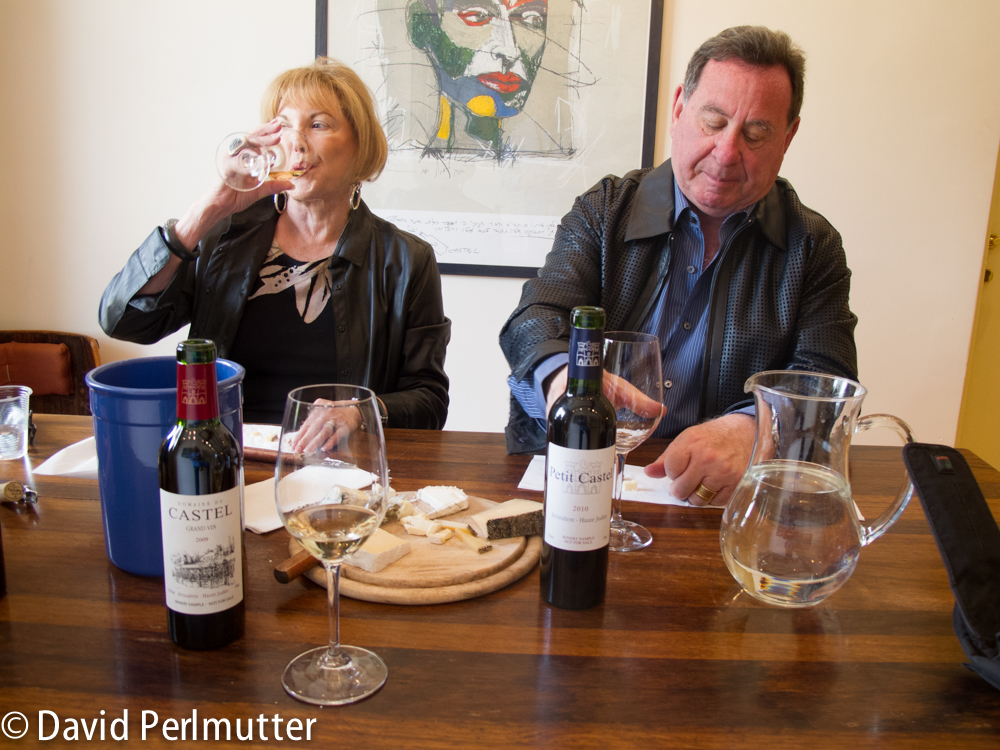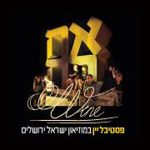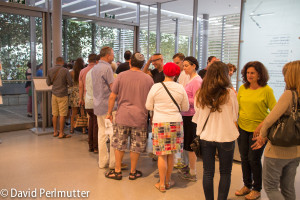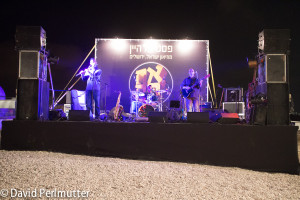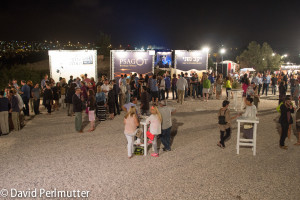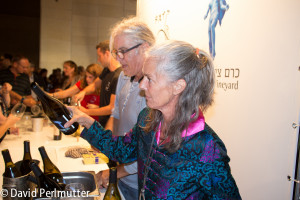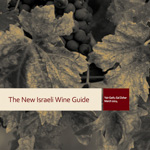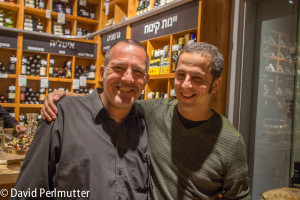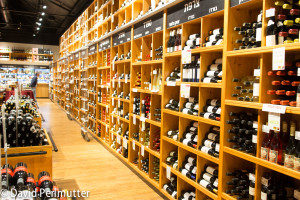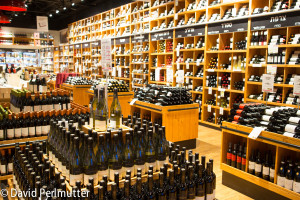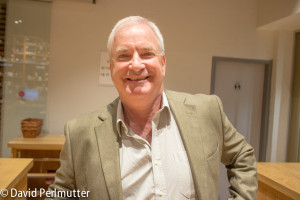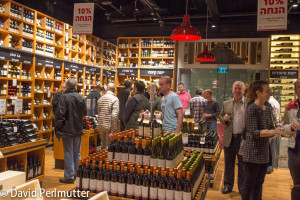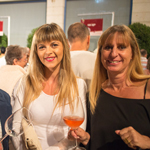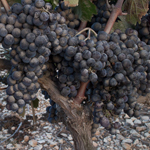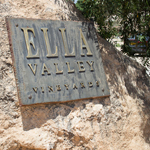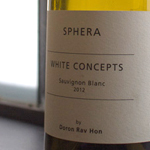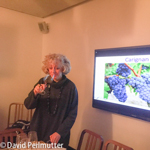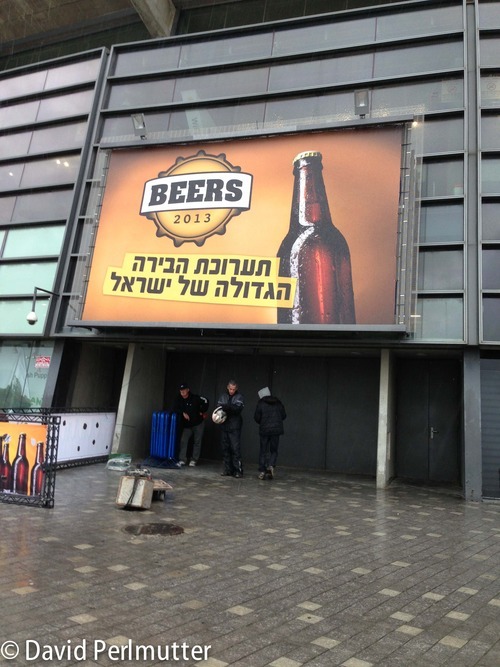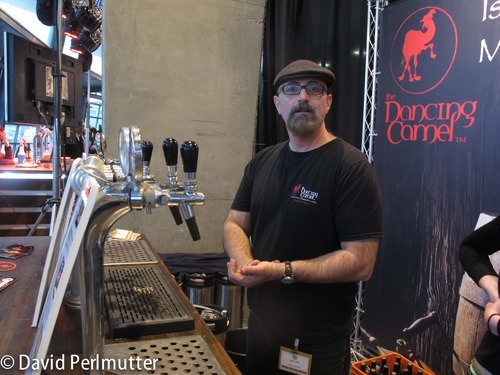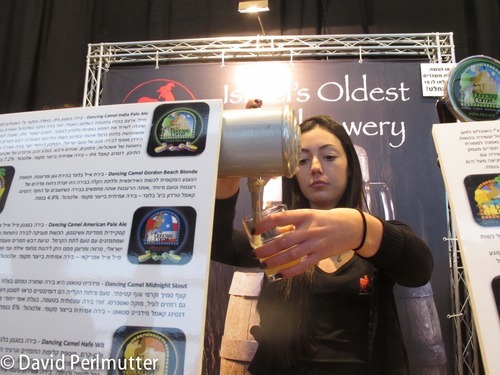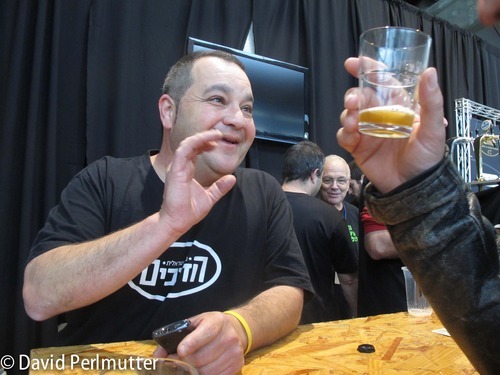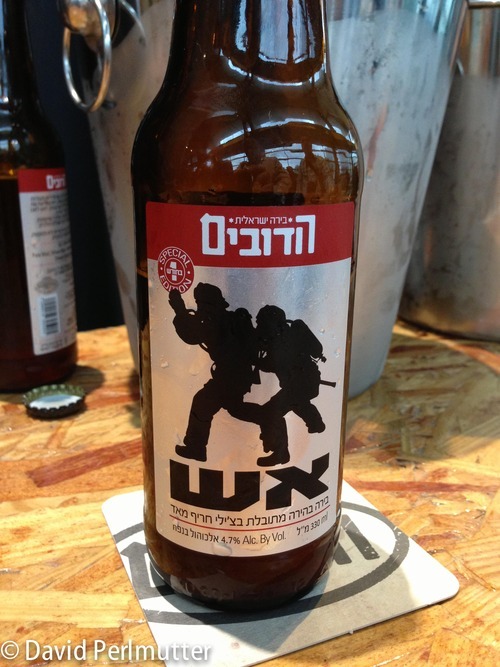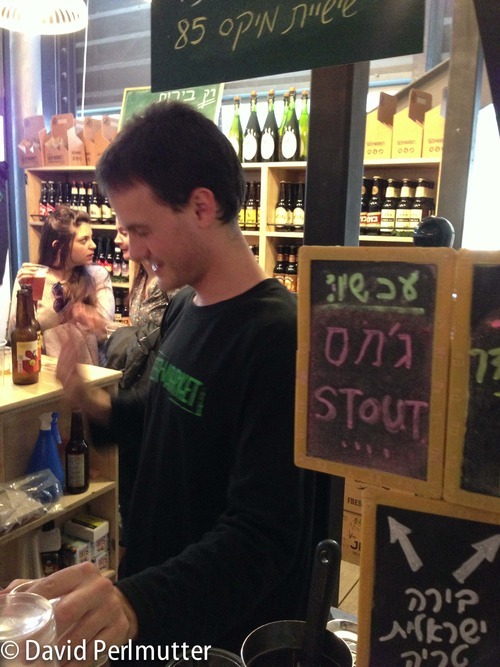On Sunday evening, January 25th I organized a special wine tasting of Carignan wines from Israel, France and Sardinia that was led by Elizabeth Gabay MW. For most people Carignan is a wine grape variety that is either disparaged or unknown. Carignan is a very robust variety that can produce high yields with high acidity and tannins, even in hot climates and as such is mainly blended to add these characteristics to cheap wines. With proper viticulture to ensure low yields and especially from old vines, varietal Carignan wines with refreshing acidity, assertive tannins and bold fruit characteristics can be achieved.
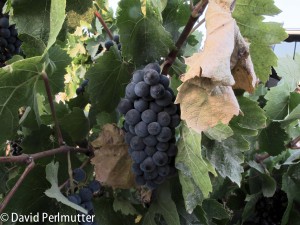
Carignan Grapes
I am very appreciative that Elizabeth Gabay agreed to lead the tasting. Elizabeth and I were virtual “friends” following each other on social media. When I saw Liz posting that she was going to be visiting Israel in January, I messaged her and asked if she would be willing to lead a tasting of Carignan varietal wines. Liz immediately replied that she would and we then corresponded by email to arrange the tasting.
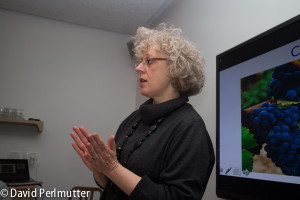
Elizabeth Gabay MW
Elizabeth Gabay worked in the wine business in London specializing in Southern French wines when she decided to pursue the Master of Wine Certification. Elizabeth Gabay was completed her MW in 1998. For the past 13 years Elizabeth has lived in Southeast France where she spends her time consulting, writing and educating about wine.
Elizabeth began the tasting with an overview of Carignan in the Languedoc-Roussillon region. She told us of the history of the planting of Carignan in Languedoc-Roussillon as well as the recent trend of uprooting Carignan grapes and planting other varieties. While there are many reasons for replanting in Provence, the fact that 90% of the wines produced there are rosé may be the main reason. Elizabeth shared statistics on yields and ages of vines, but also mentioned that no one has studied the relations among the figures of plantings, yields and ages of vines yet.
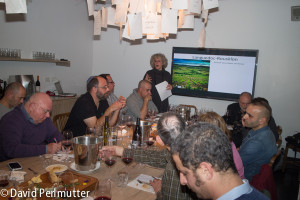
Elizabeth Gabay MW Describing Carignan in Landuedoc-Rousillon
Carignan and Israel have a 150-year-old modern history with the first Carignan vines planted by the Mikve Yisrael Agricultural School in 1870. This was followed by plantings at Carmel Wineries, then under the supervision of Baron Edmond de Rothschild, with cuttings and advice from Chateau Laffite. For a number of reasons, including payment of growers by weight and the demand for sweet sacramental wines and grape juice, Carignan did not produce interesting wines in Israel until the 21st Century.
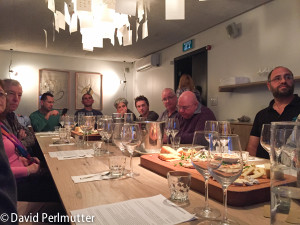
Carignan Wine Tasting
Elizabeth also spoke on the origin of the Carignan variety. Most agree that the Carignan variety originated in Aragón in northeast Spain. The Carignan vines were spread east throughout the western Mediterranean in the early Middle Ages to areas ruled by the Crown of Aragón including Sardinia, parts of modern-day France, Italy and Greece. An alternative hypothesis to the origins of Carignan is that the Phoenicians introduced Carignan vines to Sardinia in the 9th Century BCE and it spread west during the Roman Empire.
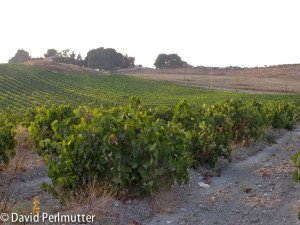
Goblet-trained Bush Vine Carignan in the Sorek Valley.
In 1999, Yair Margalit produced the first high-quality varietal Carignan wine made in Israel. Yair Margalit is also credited with having founded the first boutique winery in Israel. Unfortunately for Carignan lovers, Yair did not continue to produce Carignan wines. The real pioneer of Carignan varietal wines in Israel is Assaf Paz who produced his first Carignan at Vitkin Winery in the 2002 vintage and Vitkin has been a leader in quality Carignan wines ever since. While working at Carmel Winery, Assaf was responsible for the first two vintages of the Carmel Old Vines Carignan in the years 2004 and 2005. Today there are over a dozen wineries, most of them quite small that are producing high-quality wines from Carignan grapes. Most of these are from old vines (30-50 years) but some are successful with producing quality Carignan wines by careful viniculture to restrict yields.
Wines in Order of Tasting:
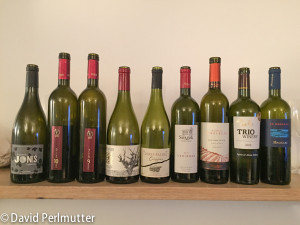
Wines Tasted at the Carignan Tasting
Domaine Jones Les Perles Old Vines Carignan 2013 Katie Jones made this wine with grapes from 100-year-old vines that grow in soil made of limestone, clay, schist and covered with rounded stones. Only 2,000 bottles of this wine are made, so little that it is not featured on the Domaine Jones website. The wine was aged for ten months in 3-4 year old barriques. This is a pleasurable medium bodied wine with good acidity and a long finish. Fresh red fruit on the nose and palate with nice soft tannins. This was the best of the non-Israeli wines tasted.
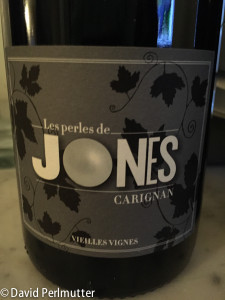
Domaine Jones Carignan
Vitkin Carignan 2010 Assaf Paz makes this wine with grapes sourced from three different vineyards in the area of Zichron Ya’akov. The grapes were harvested late and were matured in 350 liter oak barrels for 14-16 months. The wine is distinguished by bold red fruit aromas and flavors with fresh acidity and a long finish.
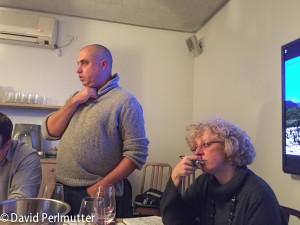
Assaf Pas Describing the Vitkin Carignan
Vitkin Carignan 2009 This wine was showed softer tannins than the 2010 vintage. Surprising the fruit flavors were of black fruit, quite different than the later vintage. The 2009 vintage was cooler than the 2010 vintage. It would be interesting to have comparative tastings of the other Israeli Carignans from these two vintages. Like the 2010 vintage, the Vitkin 2009 has a nice long finish.
Domaine Terres Falmet Carignan 2012 This wine is from the Landuedoc-Rousillon region in Southeast France. The vines grow on a Southern exposure, Carignan likes heat. This wine has medium acidity, gentle tannins and weak red fruit flavors.
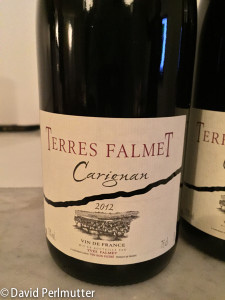
Teres Falmet Carignan 2012
Somek Carignan 2011 Barak Dahan is a fifth-generation farmer in Zichron Ya’akov with vineyards in the Bekat Hanadiv valley between Zichron Ya’akov and Binyamina. Barak started making his own wine in 2003 with his wife Hila who has a masters in oenology from the University of Adelaide. Barak has the privilege of choosing the best grapes in his vineyards for his own wines, selling most of his grapes to other vineyards. The wine is aged for 2 years in oak barrels, one-third of which are new. The Carignan vines are 50 – 80 years old. The wine has ripe black fruit aromas and flavors, fresh acidity and nice structured tannins. The oak is a bit pronounced, but this should improve with aging.
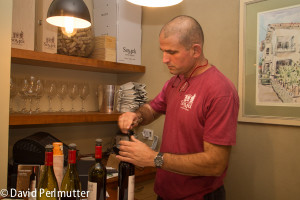
Barak Dahan at the Somek Winery Tasting Room
Recanati Wild Carignan 2013 This is the only Israeli Carignan from the Judean Hills. The vineyard is one of my favorites that I visit throughout the year. The vines are bush vines, goblet trained with no supporting trellises. The vineyard had been abandoned when discovered by Recanati’s winemakers. The vineyard receives no irrigation and produces very low yields of high-quality grapes. The Recanati Wild Carignan is characterized by robust dark fruit, fresh acidity and a long finish.
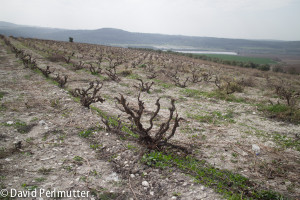
Recanati’s Wild Carignan Vineyard
Carmel Vineyards Old Vines Carignan Ein Tut 2012 Carmel is Israel’s oldest and largest commercial winery that decided to cut production a decade ago and increase the quality of its wines. The Carmel Carignan is made from grapes grown in the Shefeya Valley in a goblet-trained vineyard owned by the Wilder family, one of the founding families of Zichron Ya’akov that immigrated from Romania in 1882. The wine is made of 94% Carignan and 6% Petit Verdot grapes. The wine tastes of bold black fruit, fresh acidity and a medium finish.
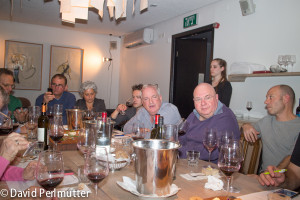
Adam Monefiore Describing the Carmel Vineyards Carignan
Trio Spirit of Alona 2013 Yotam Sharon is the winemaker at Trio Winery. The winery was started by the Shaked brothers, second generation to the owners of the Derech Hayayin chain of wine stores and major importers and distributors of wines in Israel. The Spirit of Alona is produced from grapes grown in the Alona valley and matured in 500-liter barrels. The wine has bold red fruit flavors, high fresh acidity and a long finish.
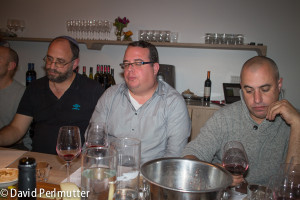
Yotam Sharon Describing the Trio Spirit of Alona
Argiolas Is Solinas This is a Sardinian wine produced in a region known for its Carignan grapes. The Is Solinas does not see oak barrels; it is matured in concrete tanks. The wine has medium acidity, without the robust fruits of the Israeli Carignans and soft tannins.
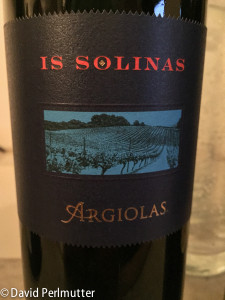
Argiolas Is Solinas. Carignan from Southwest Sardinia.
Elizabeth Gabay summed up the tasting with her appreciation of the amazing tannic structures and fresh acidity that was common to all of the Israeli Carignans. I was disappointed that I was unable to obtain more and perhaps better Carignan wines from outside of Israel for the tasting. I had reached out to some wineries to obtain their wines from the tasting but received no replies. On the Institute of Masters of Wine website they write that beyond a thorough knowledge of wine, Masters of Wine must be able to communicate this knowledge clearly. Elizabeth Gabay MW certainly fulfilled these requirements, enlightening us with her knowledge of Carignan grapes and leading us in a tasting that was educational and enjoyable for all.
Be sure to read:
Yotam Sharon’s writeup of the tasting A New Look at Carignan
Elizabeth Gabay MW’s article about the tasting A Taste of Carignan
The Institute of Masters of Wine
